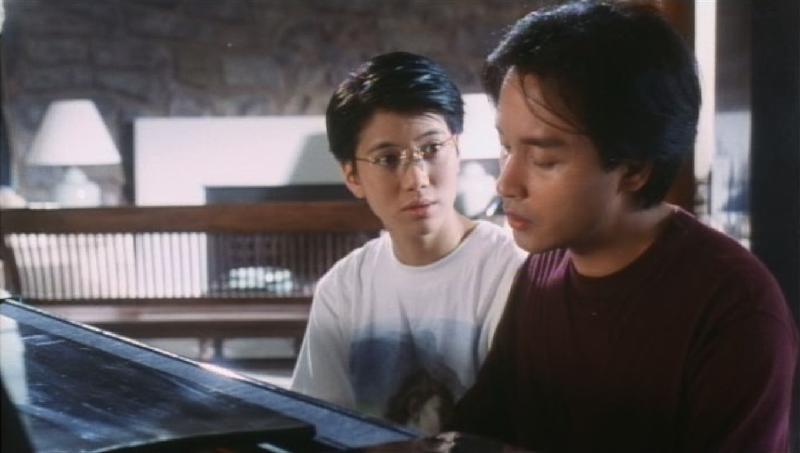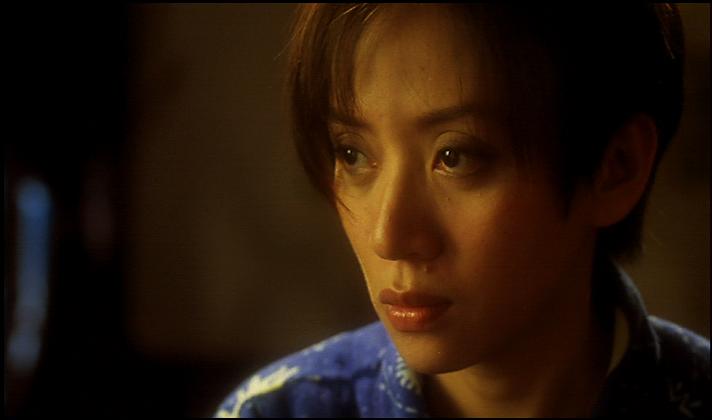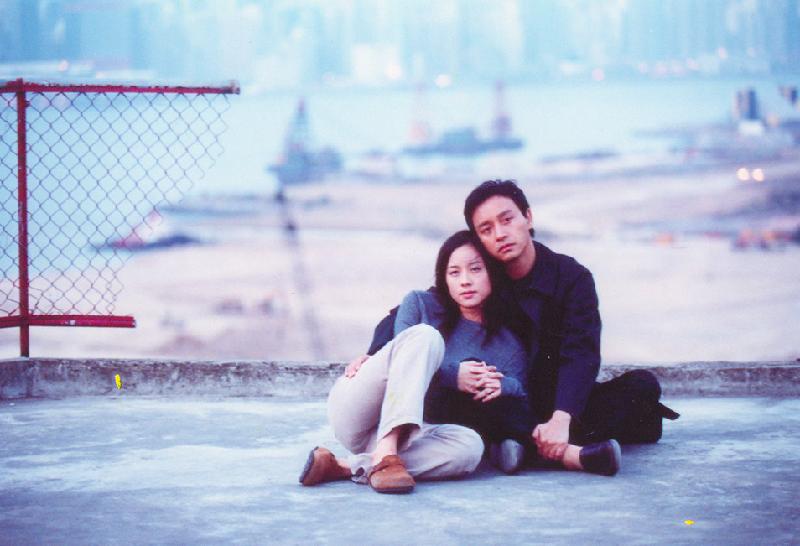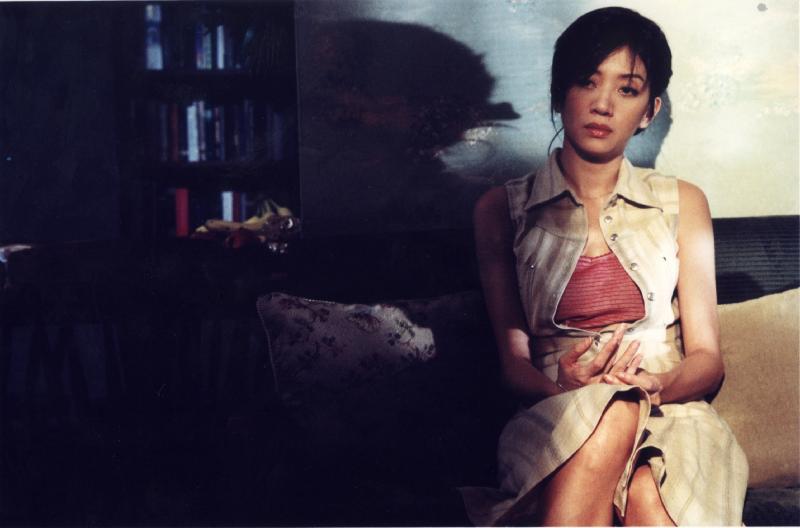Retrospective on Leslie Cheung and Anita Mui's classic works - "Glory Days: When Leslie Met Anita" (with photos)
******************************************************************************************
The opening film is "Rouge" (1988), the classic onscreen pairing of Cheung and Mui, which will be screened on March 27 at the Grand Theatre of the Hong Kong Cultural Centre. Directed by Stanley Kwan, the film tells of the romance between famous courtesan Fleur (Mui) and wealthy playboy Pang (Cheung) in the 1930s. The film won various prizes at film awards and festivals. The screening will include a three-minute music montage specially edited from a rarely seen international cut.
The other films will be screened at the HKFA Cinema from March 30 to June 10. Some of the screenings will be accompanied by post-screening talks and seminars hosted by actor Louie Castro, director Philip Chan, producer Lawrence Wong, film researchers Sam Ho, Ng Chun-hung, Yau Ching, Donna Chu, Lei Chin-pang and Jason Ho, and film critics Tsang Siu-wang, Joyce Yang, Ka Ming and William Yuen.
In addition, the HKFA will organise an exhibition entitled "Their Glory Days" at the Exhibition Hall from March 30 to July 15, showcasing the versatile onscreen personas of Cheung and Mui as well as some little-known film anecdotes about them. Admission is free.
In their early acting careers, Cheung and Mui appeared in various youth dramas that countered the respectable images of the leading roles commonly seen at the time. In "Nomad" (1982) Cheung begins a long streak as an idol with a hint of the dashing rebel, but it also gave him his first best actor nomination at the Hong Kong Film Awards. Cheung puts on his first James Dean impression in "Energetic • 21" (1982), playing an illegal street racer. In "Why, Why, Tell Me Why!" (1986) Mui plays a mahjong addict who tries to hide the habit for her love.
Both iconic Cantopop singers, Cheung and Mui were confident in bringing their musical personas onscreen. "Behind the Yellow Line" (1984) has a theme song of the same title recorded by Cheung and Mui, while "Monica", another film song by Cheung, remains a fan favourite today. Mui, playing a rich heiress, earned her first Best Supporting Actress at the Hong Kong Film Awards. In "The Musical Singer" (1985), Mui took on the role of a superstar performing her hit songs. Despite a brief appearance, Mui’s charisma dominates every scene in which she appears. Mui plays a strong-willed songstress during wartime in "Au Revoir, Mon Amour" (1991) - a character consistent with Mui's own personality. "For Your Heart Only" (1985), besides sharing the same title as a popular song by Cheung, also includes a soundtrack entirely made up of his pop hits. Musical drama "The Phantom Lover" (1995) features Cheung as a popular stage star, and for which Cheung composed and performed the entrancing theme songs.
Cheung and Mui's portrayal of love in movies always touches audiences. Staring as a brash playboy in "Days of Being Wild" (1990) Cheung won Best Actor at the Hong Kong Film Awards, and in which many of his lines have become film buffs' favourite quotes. In Chen Kaige's masterpiece "Farewell My Concubine" (1993), also the only Chinese film to win the Palme d’Or at the Cannes Film Festival, Cheung plays Peking opera performer Cheng Dieyi, who has heartrending relations with the male lead of the opera troupe. Cheng plays a young director in "Viva Erotica" (1996), in which, forced to make porn films for a living, he also uncovers the absurdities of the film industry. "Happy Together" (1997) follows the love and torture of a homosexual romance between Cheung and Tony Leung. Staring both Cheung and Anita Yuen, "He's a Woman, She's a Man" (1994) and "Who's the Woman, Who's the Man" (1996) feature several crossed relationships and gender confusions. In the latter film Mui joins the cast with an androgynous stage persona, making the story more complicated and daring. "The Greatest Lover" (1988) is a gender-reversed take on "My Fair Lady", with Mui training Chow Yun-Fat to be a rich heir. Mui vividly brings the tragic life of a legendary spy alive in "Kawashima Yoshiko" (1990), making it an emotional roller-coaster. "Eighteen Springs" (1997) depicts Mui and her sister’s respective restraints and disappointments in love. In "Midnight Fly" (2001), Mui features as a melancholic wife whose marriage is on the rocks.
Cheung and Mui also dabbled in the action films genre. Cheung made a major leap as a dramatic actor in heroic gangster classics "A Better Tomorrow" (1986) and "A Better Tomorrow II" (1987), both of which tell of a complicated bromance. "A Better Tomorrow III: Love and Death in Saigon" (1989) is a ground-breaking female-led gangster epic starring Mui as a cool female gangster, in which the theme song by Mui also became a classic. "A Chinese Ghost Story" (1987), a hybrid of wuxia, horror and romance, follows an affair between a pure-hearted young scholar played by Cheung and a female ghost Xiaoqian played by Joey Wang, which was a ground-breaking work for the genre. "Ashes of Time Redux" (1994) is a dream-like wuxia epic in which Cheung features as "Western Venom" Ouyang Feng, who is a broker for assassins living in a remote desert after a heartbreaking romance. In the modern wuxia film "Saviour of the Soul" (1991), Mui gives a stunning performance playing dual roles with distinct characters. Co-starring with Michelle Yeoh and Maggie Cheung, "The Heroic Trio" (1993) features Mui combating evils with the duo and experiencing life and death.
The two stars were also amazing comic actors. Mui amuses audiences as a fearful wife in the comedy "100 Ways to Murder Your Wife" (1986). Partnering with comedy genius Michael Hui in "Mr Boo VIII Chocolate Inspector" (1986), Mui unleashes her humorous ability in this Christmas box-office hit. In "Happy Bigamist" (1987), Mui is caught in a comedic love triangle when the ex-wife of her live-in boyfriend moves in. "The Top Bet" (1991), staring Mui and Dodo Cheng, is a comedy about a female gambling master. Blockbuster "Justice, My Foot!" (1992) is Mui's representative comedic work, in which she pairs up with Stephen Chow to play a hilarious couple. Mui cross-dresses as the incompetent and skirt-chasing king in "Wu Yen" (2001), filling the film with comic tempo. In the Chinese New Year onscreen classic "All's Well End's Well" (1992), the love story between Cheung and Teresa Mo is hilarious. Another Chinese New Year comedy, "All's Well End's Well, Too" (1993), Cheung flexes his comic muscles to play an adorable parody of the magician David Copperfield.
Cheung stars as a psychiatrist, Jim, in his first horror film "Inner Senses" (2002), which also turned out to be his final film role. "July Rhapsody" (2002), Mui’s final film appearance, depicts the confusion and struggle of a teacher-student romance. Mui's performance earned her nominations for Best Actress at various film awards. The short film "From Ashes to Ashes" (2000) is Cheung's debut work as director and actor, and illustrates the harms of smoking, with Mui acting alongside as his wife, marking the last onscreen collaboration between them. The film will be screened alongside "Behind the Yellow Line".
"Farewell My Concubine" is in Mandarin, "Happy Together" is in Cantonese and Mandarin, "Midnight Fly" is in Cantonese and English, and the other films are in Cantonese. "Viva Erotica", "Happy Together", "Eighteen Springs" and "100 Ways to Murder Your Wife" are without subtitles, while the other films are with Chinese and English subtitles.
Tickets priced at $45 are now available at URBTIX (www.urbtix.hk). For credit card telephone bookings, please call 2111 5999. For programme enquiries, please call 2739 2139 or visit www.lcsd.gov.hk/ce/CulturalService/HKFA/en_US/web/hkfa/programmesandexhibitions/2018gdwlma.html.
Ends/Wednesday, February 28, 2018
Issued at HKT 18:45
Issued at HKT 18:45
NNNN








